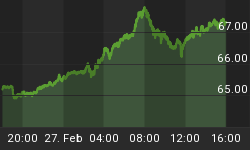As expected, the Bank of England's (BoE) Monetary Policy Committee (MPC) left the repo rate unchanged at 5.0% this morning, despite the fact that May's annual rate of inflation hit 3.3%. This was the highest since the BoE won full independence over monetary policy in 1997, and caused BoE Governor King to have to write an open letter to Chancellor Darling last month explaining why CPI is more than one full percentage point over the Bank's 2.0% target. But, as King pointed out, while inflation is likely to remain above target for some months yet, there is also a downside risk that the economy will slow sharply and pull CPI below target in two years. The past few days have certainly brought mounting evidence of a marked slowdown, with some analysts starting to whisper of the risk of recession.
King continues to argue that the recent jump in CPI is the result of soaring global food and fuel prices, that the jump is likely to be temporary, and that there is little evidence so far of second round effects, particularly not of inflation pressures driving wages markedly higher.
Chart 1
Meanwhile, there is mounting evidence of an increasingly-severe housing market correction. Today the UK's biggest mortgage lender, Halifax, reported that house prices fell 2.0% on the month and 8.7% on the year in June - a sharper decline than at the worst point of the 1992 housing market crash. Mortgage rates are running at eight-year highs and lenders are demanding deposits at 25% of value. BoE data show mortgage approvals - a leading indicator for the market -down 28% in May to a third of the level seen a year ago. Although retail sales have so far held up, sliding consumer confidence doubtless will start to weigh on the retail sector over the coming months.
There is already evidence of a slowdown in the key services sector, and the manufacturing sector is looking particularly gloomy. Last week came the news that the CIPS manufacturing sector purchasing managers' index dropped to 45.8 in June from 49.5 in May - the sharpest monthly fall since September 2001. All told, real GDP growth - which slowed to just 0.3% on the quarter in Q1 - may struggle to stay positive in Q2.
Chart 2
Caught firmly between the conflicting risks of higher inflation and a sharp economic slowdown, it's no surprise that the MPC members left rates unchanged this month. The minutes of today's meeting will be released July 23, and will likely show a split Committee. Meanwhile, key upcoming data releases include June CPI on July 15; May/June labor market data and May three-month average earnings on July 16; and the first estimate of Q2 GDP on July 21.















